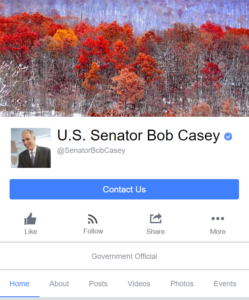In the age of social media, pretty much every elected official is using platforms like Facebook, Twitter and YouTube to connect with constituents. For our Cicero product, we’ve been maintaining social media accounts for elected officials for over 5 years and have seen the evolution from email, to web forms, to Twitter and Facebook as a means for communication. Even quite a few officials were on Vine, while it lasted.

Facebook, in particular, has been a crucial means for campaigns and politicians to spread their message — and of course the ability for followers to comment, and now express their opinion in emoji form, provides near-instant feedback about issues.
With our partnership with Facebook, we’ve been working to acquire the most comprehensive list of Facebook pages for elected officials in the 9 countries that we maintain data for. Our data now powers the Facebook Town Hall app. But so many officials have two Facebook pages — why? And which one is the best way to actually communicate with the person or their staff?
Facebook has provided official guidance about how to get started with a politics page. The general rule is this: When someone is running for office, they should use the Politician page type. When they are elected, they should use the Government Official page type. This is important for campaign finance reasons — elected officials are discouraged from doing any campaign-related activities on a Government Official page.

At the National level in the U.S., most officials follow the rules— see here Senator Bob Casey’s Politician page, which he used for campaigning and hasn’t been updated since 2016, versus his Government Official page. But rules were made to be broken. We won’t embarrass any elected officials but at the state and local level it’s a hodgepodge of elected officials using anything from personal pages to community pages as their official Facebook presence.
So if you want to get in touch with your elected official during their term, their Government Official page is the best way to go. During campaign season, their Politician page is likely to be more active — but keep in mind you might be talking to their campaign staff.
The good news is Cicero provides over 8,000 (and counting) official and campaign Facebook pages for representatives through our licensing, API and District Match platforms. If you want to find your representative’s Facebook pages, check out our free Elected Officials and Districts app, or click on the Town Hall app in your Facebook account.
